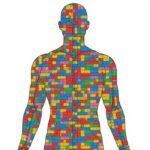New Nanotech Weapon Takes Aim at Hard-to-Treat Breast Cancer
Breast cancer in its various forms affects more than 250,000 Americans a year. One particularly aggressive and hard-to-treat type is triple-negative breast cancer (TNBC), which lacks specific receptors targeted by existing treatments. The rapid growth and metastasis of this cancer also make it challenging to manage, leading to limited therapy options and an often poor prognosis for patients.
A promising new approach that uses minuscule tubes to deliver cancer-fighting drugs directly to the tumor site while preserving healthy cells has been developed by Johns Hopkins engineers. The team’s research appeared in Nanoscale.
“In this paper, we showed that we can use nanotubes to specifically target both proliferating and senescent TNBC cells with chemotherapeutics and senolytics, killing them without targeting healthy breast cells,” said Efie Kokkoli, professor of chemical and biomolecular engineering, a core researcher at the Johns Hopkins Institute for NanoBioTechnology, and a specialist in engineering targeted nanoparticles for the delivery of cancer therapeutics.
Senescent cancer cells are those that, after exposure to chemotherapy, stop multiplying and are resistant to further treatment. Senolytics are the medications that target and eliminate them.
To create the tubes, Kokkoli’s team used single-stranded DNA (ssDNA)-amphiphiles—structures that are designed to stick to molecules like water and can self-assemble into hollow nanotubes.
The team loaded the nanotubes with either the chemotherapeutic doxorubicin or the senolytic ABT-263. Nanotubes with ABT-263 effectively killed senescent cancer cells, making them more susceptible to further treatment from doxorubicin.
This new approach that combines the therapeutic properties of both chemotherapeutics and senolytics delivered through the novel DNA nanotubes has the potential to change how TNBC and other cancers are treated as it offers a direct way to fight resistant cancers, according to Kokkoli.
“Our ssDNA nanotubes are a promising delivery vehicle that could be used for targeted delivery of therapeutics to TNBC and other cancer cells, and even though we have not started this yet, the next logical step for us is to evaluate this delivery system in animal studies and evaluate them in a mouse model of TNBC,” Kokkoli said.
Story originally posted in the Hub.
Latest Posts
-
 Year in Review 2025
January 5, 2026
Year in Review 2025
January 5, 2026
-
 Cellular building blocks may enable new understanding of the body’s “machinery”
December 19, 2025
Cellular building blocks may enable new understanding of the body’s “machinery”
December 19, 2025
-
 Biomedical Engineer Jamie Spangler Receives President’s Frontier Award
December 15, 2025
Biomedical Engineer Jamie Spangler Receives President’s Frontier Award
December 15, 2025


